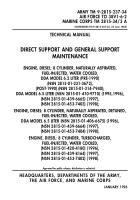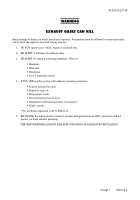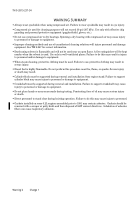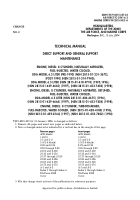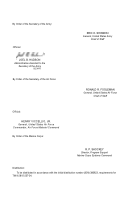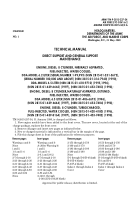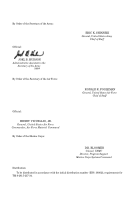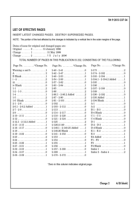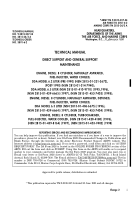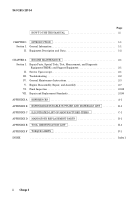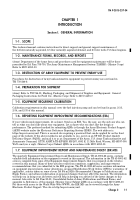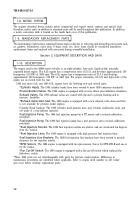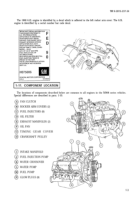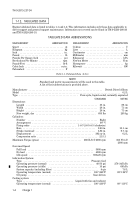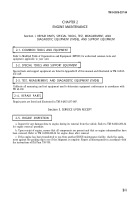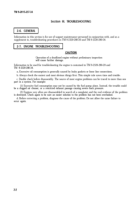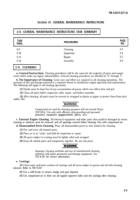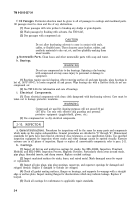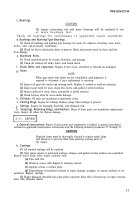TM-9-2815-237-34 - Page 3 of 267
WARNING SUMMARY
• Always wear eyeshields when using compressed air. Failure to wear eyeshields may result in eye injury.
• Compressed air used for cleaning purposes will not exceed 30 psi (207 kPa). Use only with effective chip
guarding and personal protective equipment (goggles/shield, gloves, etc.).
• Do not use compressed air to dry bearings. Spinning a dry bearing with compressed air may cause injury
to personnel or damage to equipment.
• Improper cleaning methods and use of unauthorized cleaning solutions will injure personnel and damage
equipment. See TM 9-247 for correct information.
• Drycleaning solvent is flammable and will not be used near an open flame. A fire extinguisher will be kept
nearby when the solvent is used. Use only in well-ventilated places. Failure to do this may result in injury
to personnel and/or damage to equipment.
• When steam cleaning, protective clothing must be used. Failure to use protective clothing may result in
serous injury.
• Diesel fuel is highly flammable. Do not perform this procedure near fire, flame, or sparks. Severe injury
or death may result.
• Cylinder block must be supported during removal and installation from engine stand. Failure to support
cylinder block may cause injury to personnel or damage to equipment.
• Crankshaft must be supported during removal and installation. Failure to support crankshaft may cause
injury to personnel or damage to equipment.
• Do not place hands or arms near nozzle during testing. Penetrating force of oil may cause serious injury
or death.
• Direct personnel to stand clear during hoisting operation. Failure to do this may cause injury to personnel.
• Gaskets installed on some 6.2L engines assembled prior to 1991 may contain asbestos.
Gaskets should be
removed with a scraper or putty knife and then disposed of IAW current directives.
Inhalation of asbestos
fibers can cause respiratory ailments.
TM 9-2815-237-34
Warning b
Change 1
Back to Top

